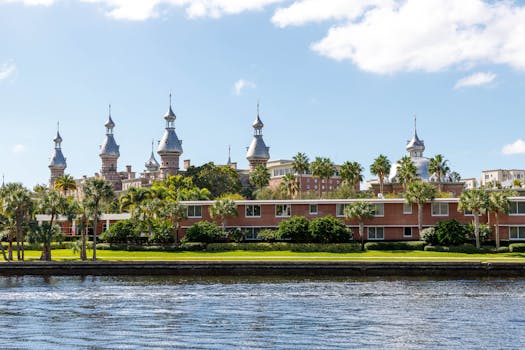Gatorade: From University of Florida Labs to Sports Fields

In the mid-1960s, a group of researchers at the University of Florida embarked on a mission to create a solution for athletes suffering from dehydration. These scientists developed a drink that would later become a household name: Gatorade. Initially aimed at improving the performance of the university's football team, the beverage quickly gained popularity and spread to sports fields across the globe.
The story of Gatorade is one of innovation and science. It began with Dr. Robert Cade and his team, who were determined to find a way to replenish the electrolytes lost during intense physical activity. Their groundbreaking work led to the creation of a formula that not only quenched thirst but also provided essential nutrients to help athletes maintain peak performance.
From its humble beginnings in a university lab, Gatorade has evolved into a multi-billion-dollar industry. Its success can be attributed to continuous research and development, strategic marketing, and endorsements from top athletes. Today, Gatorade is synonymous with sports hydration and is trusted by both professional athletes and casual fitness enthusiasts alike.
The Birth of Gatorade
The origin of Gatorade traces back to 1965 when Dr. Robert Cade and his colleagues were approached by the University of Florida's football coach. The coach was concerned about his players' performance in the scorching heat and wanted a solution to prevent dehydration. The researchers discovered that athletes were losing fluids and electrolytes through sweat, which water alone could not replace.
After months of experimentation, Cade and his team created a drink that contained water, sugar, sodium, potassium, and phosphate. This concoction not only hydrated the players but also replenished the electrolytes they lost during games. The Florida Gators tested the drink during practice sessions, and it quickly became known as "Gatorade," named after the team's mascot.
The impact was immediate. Players reported feeling more energized and less fatigued. The Gators' performance improved noticeably, culminating in their first Orange Bowl victory in 1967. This success story caught the attention of other teams and eventually led to Gatorade's commercialization.
Expansion and Commercialization
Recognizing the potential for wider application, Stokely-Van Camp acquired the rights to produce and market Gatorade in 1967. The company launched an aggressive marketing campaign targeting athletes at all levels. By 1983, Quaker Oats had purchased Stokely-Van Camp and continued to expand Gatorade’s reach.
Gatorade’s marketing strategies played a crucial role in its growth. Endorsements from high-profile athletes like Michael Jordan helped solidify its reputation as the go-to sports drink. The brand also invested heavily in research to continuously improve its formula and develop new products tailored to different athletic needs.
Today, Gatorade offers a wide range of products including energy chews, protein shakes, and zero-calorie options. Its presence extends beyond sports fields into gyms, schools, and households worldwide.
Scientific Advancements
Gatorade's commitment to science has been unwavering since its inception. The Gatorade Sports Science Institute (GSSI), established in 1985, conducts cutting-edge research on sports nutrition and hydration. GSSI's findings have led to numerous innovations in product development, ensuring that Gatorade remains at the forefront of sports science.
For example, GSSI studies have revealed that different sports require different hydration strategies. This has resulted in specialized products like Gatorade Endurance for marathon runners and Gatorlyte for quick rehydration. These advancements underscore Gatorade’s dedication to meeting the specific needs of various athletes.
| Year | Milestone |
|---|---|
| 1965 | Creation of Gatorade at University of Florida |
| 1967 | Commercialization by Stokely-Van Camp |
| 1983 | Acquisition by Quaker Oats |
| 1985 | Establishment of GSSI |
| 2001 | PepsiCo acquires Quaker Oats |
| Present | Continued innovation in sports nutrition |
Global Impact
Gatorade's influence is not limited to the United States; it has become a global phenomenon. The brand is available in over 80 countries, each with tailored formulations to suit local tastes and nutritional requirements. This adaptability has allowed Gatorade to maintain its position as a leader in sports hydration worldwide.
In addition to catering to professional athletes, Gatorade has made significant contributions to community sports programs. Sponsorships and partnerships with youth leagues help nurture young talent by providing them with essential resources for optimal performance.
The Future of Sports Hydration
As technology advances, so does our understanding of human physiology and hydration needs. Gatorade continues to invest in research to stay ahead of these developments. Emerging trends such as personalized nutrition are likely to shape the future of sports hydration.
With wearable technology becoming more prevalent, real-time data on an athlete’s hydration levels could soon be integrated with customized hydration solutions. This would enable athletes to receive tailored recommendations based on their unique physiological profiles, further enhancing their performance and recovery.
A Legacy Built on Innovation
The journey of Gatorade from a university lab experiment to a global brand is a testament to the power of innovation and scientific inquiry. Its ongoing commitment to research ensures that it remains relevant in an ever-evolving landscape of sports nutrition.
Whether you are a professional athlete or someone who enjoys an occasional workout, Gatorade offers products designed to meet your hydration needs effectively. Its legacy continues to inspire new generations of scientists, athletes, and consumers who seek optimal performance through proper hydration.